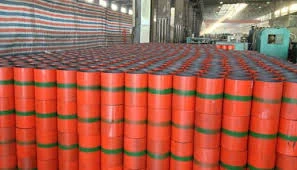- Afrikaans
- Albanian
- Amharic
- Arabic
- Armenian
- Azerbaijani
- Basque
- Belarusian
- Bengali
- Bosnian
- Bulgarian
- Catalan
- Cebuano
- Corsican
- Croatian
- Czech
- Danish
- Dutch
- English
- Esperanto
- Estonian
- Finnish
- French
- Frisian
- Galician
- Georgian
- German
- Greek
- Gujarati
- Haitian Creole
- hausa
- hawaiian
- Hebrew
- Hindi
- Miao
- Hungarian
- Icelandic
- igbo
- Indonesian
- irish
- Italian
- Japanese
- Javanese
- Kannada
- kazakh
- Khmer
- Rwandese
- Korean
- Kurdish
- Kyrgyz
- Lao
- Latin
- Latvian
- Lithuanian
- Luxembourgish
- Macedonian
- Malgashi
- Malay
- Malayalam
- Maltese
- Maori
- Marathi
- Mongolian
- Myanmar
- Nepali
- Norwegian
- Norwegian
- Occitan
- Pashto
- Persian
- Polish
- Portuguese
- Punjabi
- Romanian
- Russian
- Samoan
- Scottish Gaelic
- Serbian
- Sesotho
- Shona
- Sindhi
- Sinhala
- Slovak
- Slovenian
- Somali
- Spanish
- Sundanese
- Swahili
- Swedish
- Tagalog
- Tajik
- Tamil
- Tatar
- Telugu
- Thai
- Turkish
- Turkmen
- Ukrainian
- Urdu
- Uighur
- Uzbek
- Vietnamese
- Welsh
- Bantu
- Yiddish
- Yoruba
- Zulu
bull plug vs hex plug
Bull Plug vs. Hex Plug Understanding the Differences
When it comes to plumbing and fluid systems, the type of plug used can make a significant difference in functionality and performance. Two common options are the bull plug and the hex plug. While both serve the purpose of blocking off openings in pipes or fittings, they have unique designs and applications.
Bull Plug Defined
A bull plug, also known as a round plug, is a type of pipe plug with a rounded head. This design allows for easy installation, as it can be driven into a threaded opening without requiring complex tools. Bull plugs are commonly used in various piping applications, including water supply systems and irrigation networks. Their rounded shape also makes them less prone to stripping when inserting or removing, making them user-friendly.
One of the significant advantages of bull plugs is their ability to provide a tight seal. The rounded surface creates a larger contact area with the threads of the pipe, helping to prevent leaks. This feature is particularly beneficial in systems where pressure fluctuations can occur, ensuring the integrity of the system remains intact.
Hex Plug Characteristics
bull plug vs hex plug

In contrast, hex plugs come with a hexagonal head, which allows for a wrench or socket tool to easily grip and tighten or loosen the plug. This design makes hex plugs more suitable for high-torque applications where a secure fitting is paramount. Hex plugs are often used in hydraulic systems and engine components, where the requirements for sealing and pressure resistance are higher.
A hex plug’s design enables a more reliable connection, especially in situations requiring frequent adjustments or maintenance. However, they may be more susceptible to stripping if not handled carefully, as the edges can wear down over time with repeated use.
Choosing the Right Plug
When deciding between a bull plug and a hex plug, several factors should be considered, including the specific application, required pressure tolerance, and the ease of installation or removal. For systems involving frequent adjustments and higher torque, hex plugs may be the best choice. Conversely, for straightforward installations where ease of use is key, bull plugs can provide an effective solution.
In summary, both bull plugs and hex plugs have their place in various applications, each offering unique advantages. Understanding the distinct features of these plugs can help in making informed decisions for your plumbing and fluid handling needs.
-
Tubing Pup Joints: Essential Components for Oil and Gas OperationsNewsJul.10,2025
-
Pup Joints: Essential Components for Reliable Drilling OperationsNewsJul.10,2025
-
Pipe Couplings: Connecting Your World EfficientlyNewsJul.10,2025
-
Mastering Oilfield Operations with Quality Tubing and CasingNewsJul.10,2025
-
High-Quality Casing Couplings for Every NeedNewsJul.10,2025
-
Boost Your Drilling Efficiency with Premium Crossover Tools & Seating NipplesNewsJul.10,2025







